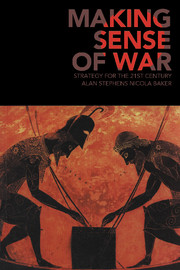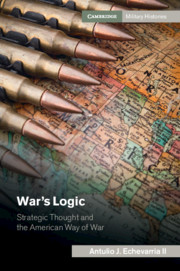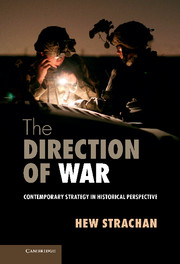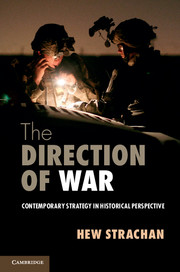Making Sense of War
Making Sense of War provides a comprehensive and clear analysis of the complex business of waging war. It gives readers a thorough understanding of the key concepts in strategic thought, concepts that have endured since the Athenian general Thucydides and the Chinese philosopher/warrior Sun Tzu first wrote about strategy some 2500 years ago. It also examines the influence on strategic choice and military strategy of political, legal and technological change. This book discusses strategy at every level of competition, employing a thematic approach and using historical examples from 500 BCE to the present. It discusses the contraints and opportunities facing military commanders in the 21st century, and demonstrates that the formulation of military strategy will continue to be perhaps the single most important responsibility for senior security officials. Making Sense of War offers original insights into the imperatives of military success in the era of asymmetric warfare.
- The book is thematic and is therefore relevant to any set of strategic circumstances, at any level of competition
- The wide range of historical examples illustrates the constancy of strategy throughout the ages
- It is written in a style that has a broad appeal, from the specialist to the lay reader
Reviews & endorsements
"This carefully crafted and well-researched book draws on Clausewitz, Jomini, Machiavelli and Sun Tzu and uses relevant historical events as examples."
David A. Anderson, Military Review
Product details
November 2006Paperback
9780521676649
306 pages
229 × 152 × 16 mm
0.41kg
Available
Table of Contents
- Preface
- Introduction
- 1. How to wIn - the nature of strategy
- 2. Stove-piped strategy - the schools of strategic thought
- 3. Traditional warfighting concepts and practices - what strategy has been
- 4. Manoeuvre and the application of force - applying strategy
- 5. Shaping the strategic environment - making strategy work
- 6. Strategic paralysis - strategy as an ideal
- 7. Contemplating war - political imperatives and strategic considerations
- 8. Constraints on war - strategy, legality and prudence
- 9. Controlling war - soldiers, civilians, and the optimum use of force
- 10. Peacemaking - intervening to protect and repair
- 11. War in the twenty-first century - the end of strategy?
- Select bibliography.









